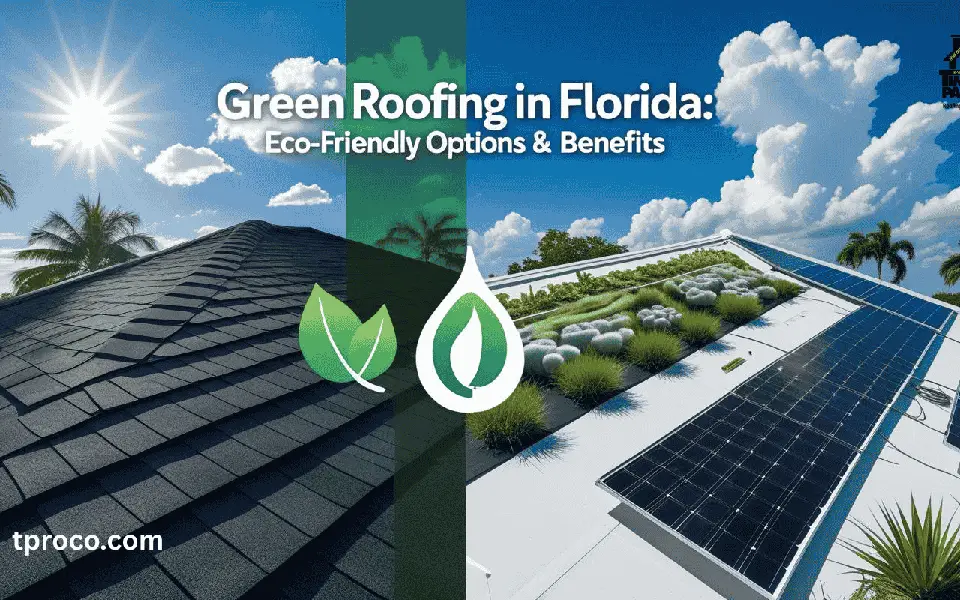Our Blogs
Florida Roof Warranties 101: Coverage, Maintenance & Avoiding Voids 📜
Roof warranties can be confusing—particularly in Florida, where climate extremes (hurricanes, high UV, salt air) make coverage details even more critical. Many homeowners assume a “25-year shingle warranty” means they’re set, only to find out certain conditions, maintenance requirements, or installation methods can void or limit that coverage. This blog sheds light on the two main categories of warranties—manufacturer (for materials) and workmanship (for installation)—and highlights common pitfalls in Florida, like unapproved repairs or ignoring required maintenance. By understanding your warranty specifics, you can keep your roof validly covered, even under Florida’s challenging weather conditions.

Types of Roof Warranties in Florida
Roof warranties generally fall into two categories:
Manufacturer’s Warranty:
Covers the roofing materials—shingles, tiles, underlayment—against defects in manufacturing. Duration can range from 20 years to “lifetime.” This warranty typically includes disclaimers for improper installation, climate factors beyond normal conditions, or using unapproved accessories.
Workmanship Warranty:
Provided by your roofing contractor, covering labor and installation errors for a specific time (often 1–10 years). If your roof leaks due to poor nailing or flashing, the contractor warranty should pay for repairs—unless it’s expired or you’ve done unapproved alterations.
Some Florida roofers also offer extended warranties from the manufacturer if they’re “certified installers,” which can add coverage for both materials and labor. Understanding the difference is crucial: if a leak stems from defective shingles, the manufacturer might step in; if it’s due to a sloppy install, the contractor must address it. A well-structured contract references both warranties, so you know who’s responsible for what under Florida’s stormy climate stressors.
Coverage Limitations & Prorating
While a “lifetime” warranty sounds great, Florida homeowners should dig deeper into the fine print:
- Pro-Rated Periods: Many manufacturers fully cover defective materials for the first 5–10 years, then “pro-rate” coverage. So at year 15, you might only get a fraction of the roof replacement cost.
- Material-Only Compensation: Some warranties cover new shingles or tiles but not labor to tear off and install. In Florida, labor can be a hefty chunk of re-roofing costs.
- Hurricane/Storm Exclusions: Check if coverage excludes “acts of God” or if wind speeds above certain thresholds void the material warranty. If your area hits 140 mph gusts and the warranty’s limit is 110 mph, you’re out of luck.
- Installation Requirements: The manufacturer may specify 6 nails per shingle in high-wind Florida zones or a specific underlayment brand. Failing these can nullify coverage.
Reading these terms reveals how the warranty “lifespan” can shrink with each year. For instance, a 50-year rating might only yield partial compensation if your roof fails after year 20. And if your contractor used shortcuts or mismatch adhesives, the manufacturer can deny claims. Always confirm your roof system fully complies with the brand’s guidelines for Florida’s wind zone. Even the best materials become vulnerable if installed incorrectly, leaving you with less coverage than you anticipated.
Maintenance Obligations: Keeping Your Warranty Valid
Nearly all warranties mandate regular roof maintenance—a big factor in Florida. Requirements often include:
- Annual Inspections: The warranty might specify a professional roof check at least once a year or post-hurricane to spot missing shingles, cracked flashing, or clogged gutters. Failing to do so could void coverage if damage escalates.
- Debris Removal: Allowing leaves or branches to pile up in valleys can foster algae or rot, which might be deemed neglect.
- Prompt Repairs: If you see a small leak or broken tile and ignore it for months, resulting in larger damage, the manufacturer could deny claims for negligence.
- No Unauthorized Modifications: Installing solar panels, satellite dishes, or skylights without adhering to the roofing brand’s guidelines can instantly void coverage.
Documentation is key. Keep receipts or photos of each inspection, gutter cleaning, or minor repair to prove you followed maintenance guidelines. In Florida’s humid climate, regular upkeep is extra important—lack of ventilation or small cracks can quickly spiral into mold or deck rot. By showing you’ve maintained your roof properly, you preserve your warranty’s value and ensure no insurer or manufacturer can claim negligence if a bigger problem arises.
DIY Repairs & Warranty Voids
In Florida’s climate, roof leaks might tempt handy homeowners to patch them themselves. But be cautious:
- Unapproved Sealants or Nails: Manufacturers often specify certain adhesives, nails, or techniques. Using hardware store caulk could conflict with the brand’s guidelines.
- Incorrect Shingle Repairs: Lifting shingles incorrectly can tear the seal strip or damage granules, leading to “unapproved modifications.”
- Power Washing: Aggressive cleaning that strips granules might void coverage if the brand prohibits high-pressure methods.
This doesn’t mean you’re barred from all DIY, but you must follow the warranty’s fine print. Some require repairs by “certified installers” or a licensed Florida roofer for coverage to remain intact. If you choose to DIY, carefully document your steps, materials used, and ensure they align with the brand’s recommended approach. For bigger issues like replacing entire sections or adjusting the underlayment, professional involvement is often safer for both results and warranty validity.
Filing a Warranty Claim in Florida
When a defect emerges—like premature shingle granule loss or manufacturing flaws—follow these steps:
Contact the Contractor & Manufacturer:
Start with your roofer to confirm if it’s an installation or material issue. If it’s clearly material-related, the manufacturer’s rep might need to inspect.
Provide Documentation:
Offer proof of purchase, the brand, product line, date of installation, and any required receipts. Show your maintenance log or inspection records to refute neglect.
Be Prepared for an Inspection:
The manufacturer may send an inspector to verify the product was installed per guidelines. They’ll look for issues like inadequate nails or unapproved underlayment.
Negotiate Resolution:
If your claim is valid, they might offer new materials, partial labor reimbursement, or pro-rated settlement. Don’t be afraid to push if you believe you deserve more based on the warranty terms.
In Florida, it’s wise to keep a digital file of your warranty documents and all maintenance actions. Quick access to proof can streamline the claim process. Also, beware that after a big hurricane event, manufacturers could be swamped with claims—persistence and thorough evidence help you get a fair outcome.
Conclusion
📜 Roof warranties in Florida can be a lifeline—if you adhere to installation standards and ongoing maintenance set by both the manufacturer and contractor. Understanding your coverage scope, pro-rated timelines, and any storm-related limits spares you unwelcome surprises when filing a claim. Regular inspections, prompt repairs, and using approved methods or materials keep your warranty intact, even under the Sunshine State’s punishing weather. Whether you’ve got a 3-tab shingle or advanced metal system, treat your warranty as a partnership: you uphold your end by caring for the roof, and they stand behind their product if manufacturing flaws arise.
Frequently Asked Questions (FAQ)
📜 Got a Roof Warranty in Florida? Make Sure It Actually Covers You!
Not all warranties are created equal. Learn the differences between manufacturer and workmanship coverage, and how Florida’s climate or DIY repairs could void your protection.
#tproco #tppro #tprci #urro #rrfl
#RoofWarranty #FloridaCoverage #MaintenanceMatters #TampaContractors #OrlandoRoof #SunshineState
Schedule a Free InspectionAbout the Author

Timothy Parks
CEO
📢 Stay Informed: Communication & Consent Updates
At Timothy Parks Roofing & Construction Inc., we prioritize transparency in our communications. By submitting a request, you agree to receive calls, texts, and emails regarding our services. Standard messaging rates may apply. You can opt-out at any time by replying STOP or contacting us directly.
✅ Florida License: #CBCO59592, #CCC1327217, #HI4878
📌 Privacy & Terms: Read our Privacy Policy and Terms of Service.



